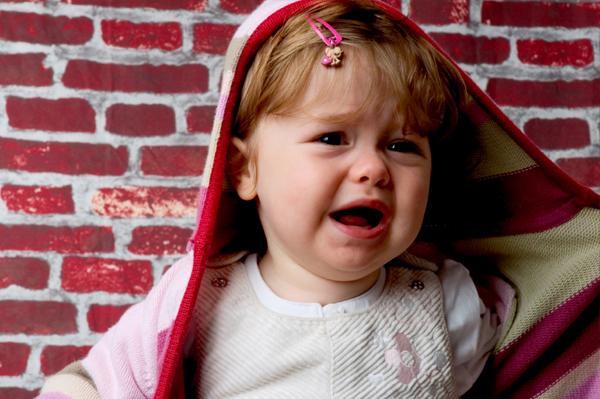Written by By Sarrah Le Marquand For Kidspot
With these eight seemingly innocent words the cycle of violence and abuse to which our society’s most vulnerable citizens are subjected is allowed to continue
When you live in a country ruled by a Prime Minister famed for torturing the vernacular (dubbing the Prince of Cambridge the “royal bub” the most recent cringe-inducing example), it’s hard to isolate a single statement for dishonourable mention.
And yet there’s one sentence – regularly trotted out across Australia whenever the debate over physical punishment is reignited – that stands alone in its breathtaking ignorance and stupidity: “I got smacked and I turned out fine.”
With those eight seemingly innocent words the cycle of violence and abuse to which our society’s most vulnerable citizens are subjected is allowed to continue.
Because if you were smacked as a child and you did indeed turn out fine then you are one of the lucky ones.
The thing is, it’s not about YOU
Maybe Mum once delivered a short smack while you were in the midst of a full-blown tantrum in the confectionery aisle of the supermarket? Or perhaps Dad briefly let fly after you narrowly missed being hit by a car after running onto the road to retrieve your football?
And, if you were really lucky, they might even have sat you down later to explain their actions. To reiterate that although you were in the wrong, and deserving of a reprimand, they lashed out in a moment of anger and panic.
If that’s vaguely similar to your experience of being smacked as a child then chances are yes, you did turn out fine. Lucky you.
But here’s the problem: the real debate over smacking isn’t about you. It’s about the children who got smacked and didn’t turn out fine. The ones who grew up to battle depression and low self-esteem, and were taught the best way to handle anger is to give in to it.
Yet the very real impact of abuse-disguised-as-discipline that goes on behind many a closed door in suburban Australia is too often dismissed by a chorus of well-adjusted adults who assume their understanding of smacking is absolute.
A dangerous loophole…
As usual, calls by The Royal Australasian College of Physicians to make physical punishment of children illegal has been howled down as an overreaction on the part of “do gooders”.
To those whose only exposure to smacking amounts to a rare moment of weakness by an otherwise loving parent, it’s hard to understand what all the fuss is about.
But for the children so desperately unlucky enough to find themselves at the mercy of caregivers unwilling or incapable of controlling their aggression, it’s imperative we make a fuss.
It’s unlikely anyone fortunate enough to grow up to subscribe to the “I turned out fine” school of thought were among the cases which prompted The Royal Australasian College of Physicians to take this stance.
Too often so called “tough love” is nothing but a socially acceptable defence for behaviour that in any other scenario would be deemed abhorrent.
Taking out our frustration in hitting a fellow adult is considered illegal. Yet when passed off as “discipline”, striking a child remains socially sanctioned.
For some parents, it’s a dangerous loophole. Confident the law is on their side, they feel justified in inflicting pain on their offspring whenever something goes wrong.
Why bother with any form of discipline that requires effort and imagination when a simple whack will suffice? You won’t hear any “I turned out fine” platitudes from the innocent children trapped in households where smacking gradually morphed into something more sinister.
So should smacking be banned?
We like to think a good parent knows where to draw the line. And for the majority of mums and dads, that is true. But it’s the minority we have to worry about. Parents who fail to recognise where discipline ends and abuse begins.
Is legally banning smacking the solution? So long as otherwise loving parents occasionally slip up, the answer must be no.
A situation where a responsible mother finds herself arrested in the afore-mentioned confectionary aisle for delivering a quick smack to an inconsolable toddler is untenable.
While it’s a measure that might be practical within another generation, to criminalise smacking just yet would be premature. But it’s an important debate, and one that should not be dominated by the voices of those fortunate enough to have enjoyed a non-abusive childhood.
Nor should the airing of very real objections to smacking be confused with the absence of discipline of any kind, a line favoured by those fond of bellowing that the abolition of corporal punishment is responsible for all the world’s ills.
So let’s retire the tiresome notion that a ban on smacking equates to an absence of punishment or boundaries. The two aren’t mutually exclusive.
For the sake of the well-intentioned majority, any changes to the law should remain hypothetical for now. But in the meantime we should seriously consider outlawing any further utterances of the phrase “I got smacked and I turned out fine”.
How do you feel about using smacking as discipline for children? Have your say in the comments below.
Related Articles:


